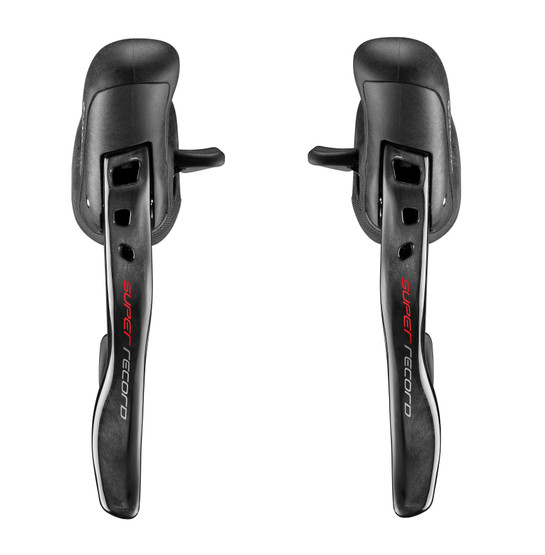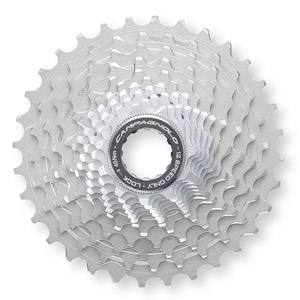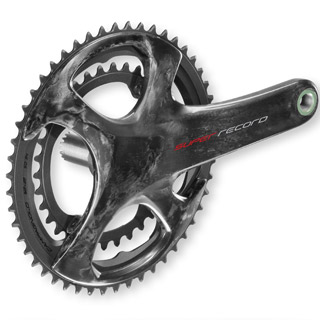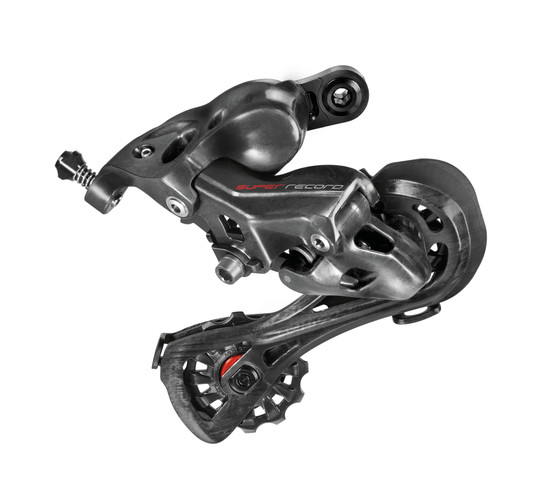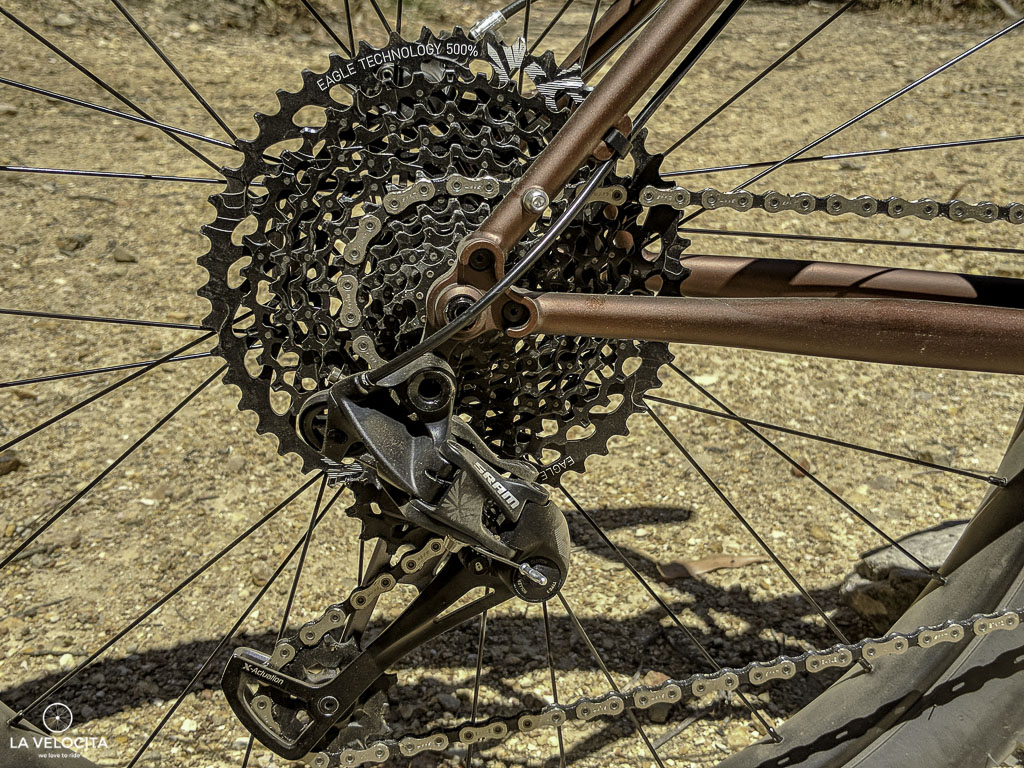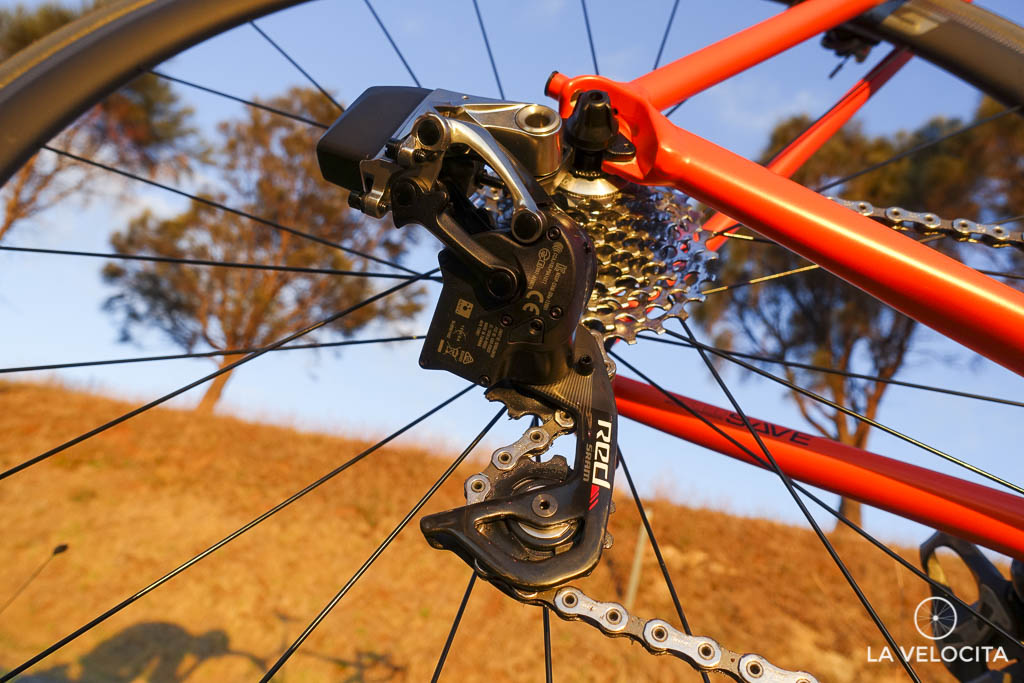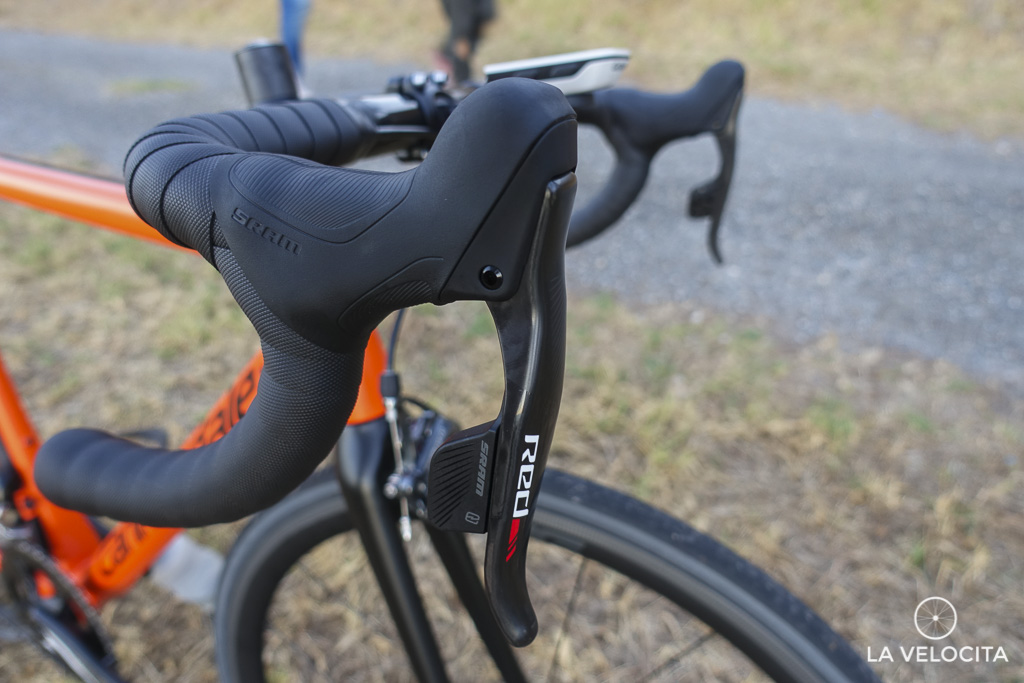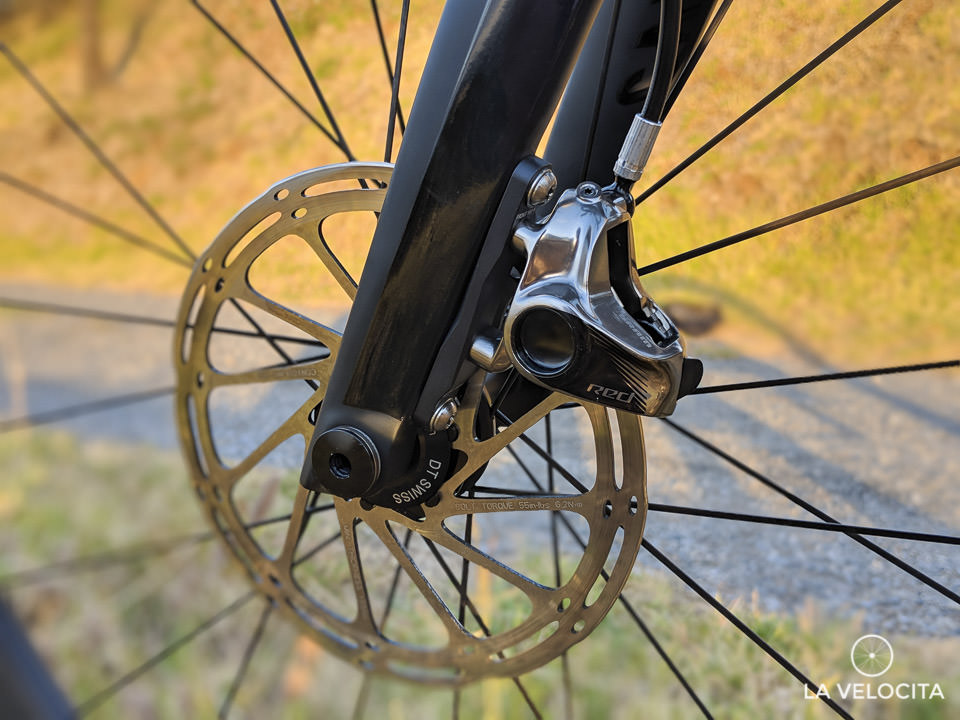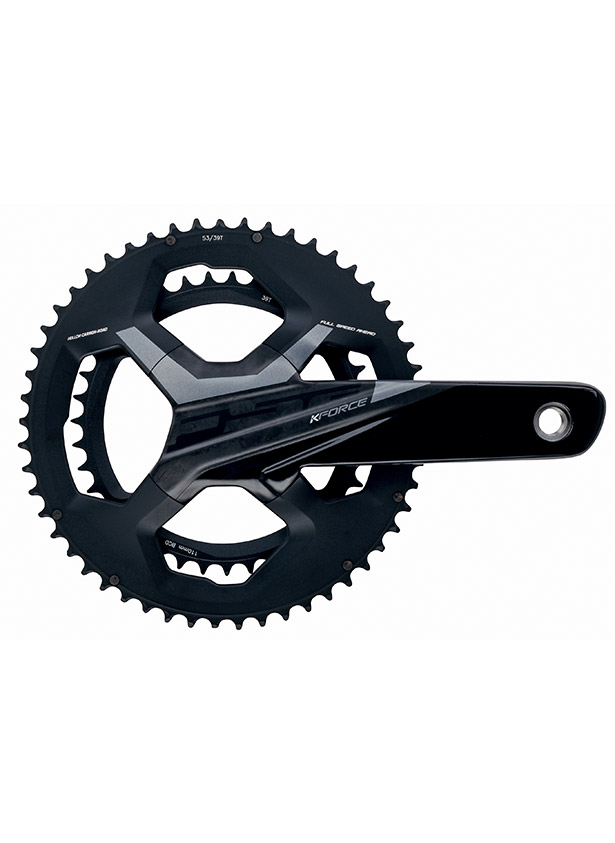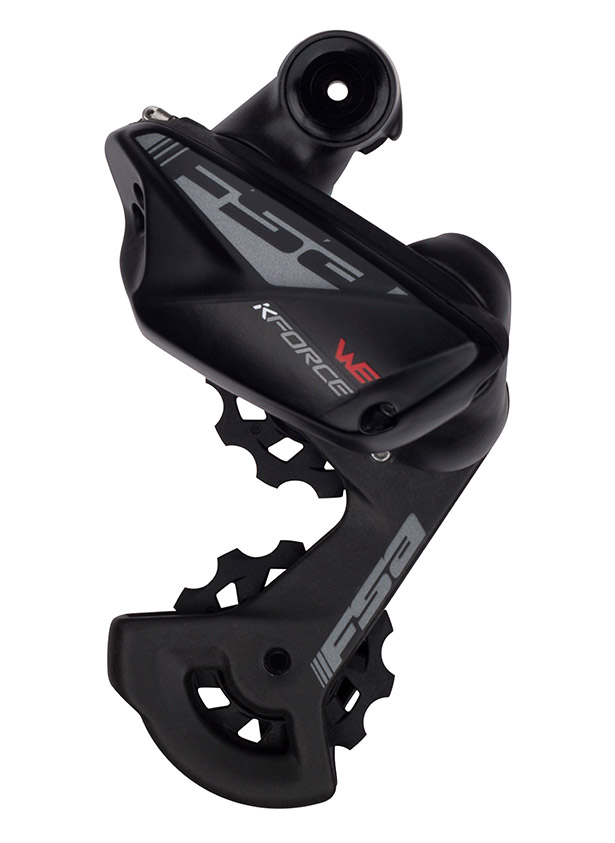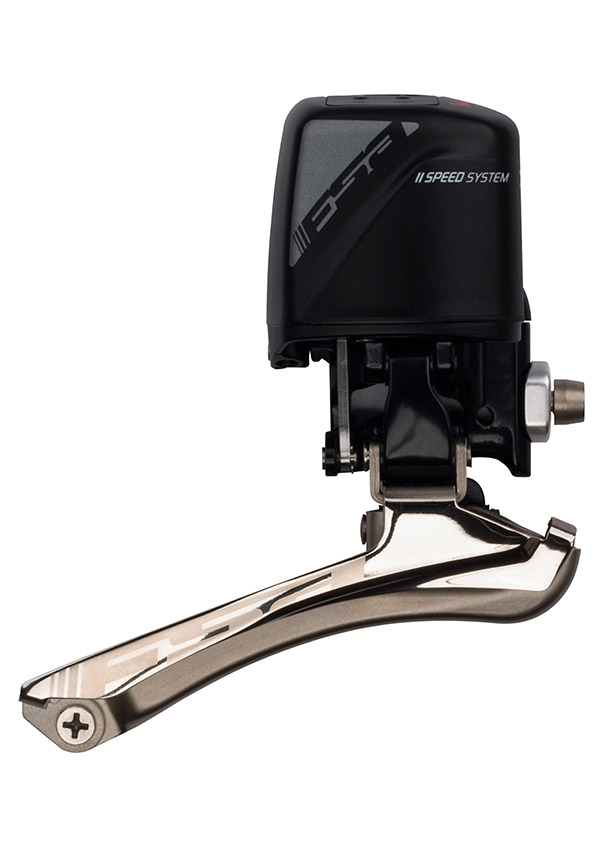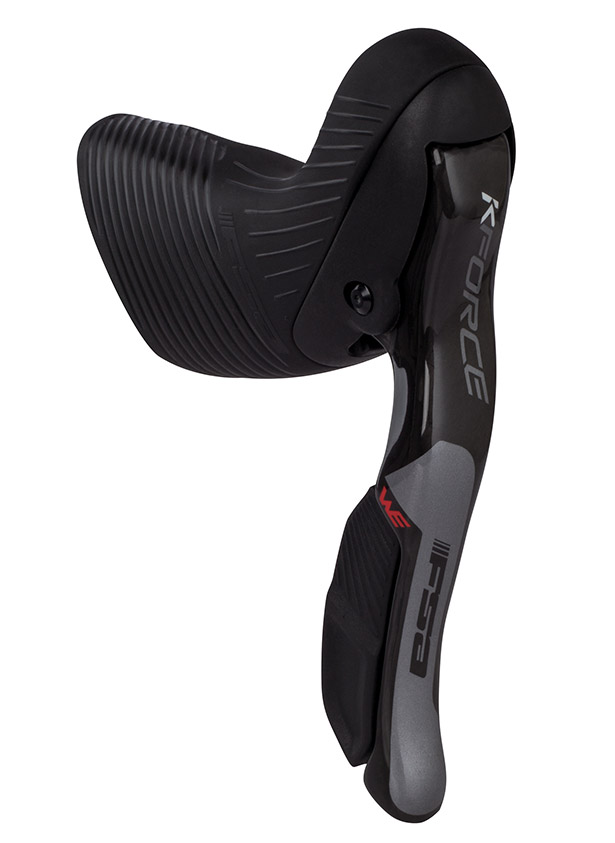The Wild West of Road Groupsets

Just what is going on with road groupsets right now and what does that mean for us?
The road groupset market is a technological and philosophical Wild West right now. It’s fascinating for the volume and variety of choice. It’s more than a battleground over how we pedal, change gears, and decelerate. It’s a contest to define the future of bike design. Each maker is showing a preference for how they think road cycling will develop.
We’re delving into the top end of the current crop of road groupsets to see who’s doing what, and what that means for the future of groupsets. Trickle down tech means we’re probably seeing the future of consumer-grade products beneath the professional peloton. Take a deep breath, this is a little complicated!
CAMPAGNOLO
Campagnolo’s recent 12-cogged bombshell marked their first time beating the competition with a new technology for quite some while. Adding a cog might not seem like "new" tech necessarily, but it’s a substantial groupset redesign. We’ve got a fair bit of experience with Campagnolo’s mechanical groups but are yet to have the pleasure of trying their discs or electronic shifting options. Campy have confirmed that electronic and disc won’t be far away either.
Campagnolo’s modus operandi is churning out excellent products that tend to be the most expensive in their price point. We still love them - so much we wrote an article about it - so fingers are crossed we get to review some of it.
We’d like to see 12 speed trickle down to Potenza level where the extra cog can close some gaps on the 32t cassette. Beyond that, it's always unclear how influential Campagnolo will be in the groupset market with their current piece of the pie being small and high-end. Thankfully for current customers, 12 speed will slot straight onto the freehubs that have been around since 9 speed. Campagnolo won't change the groupset game, but they're guaranteed to refine it.
SRAM
SRAM has been firing sorties at their most hated enemies: gear cables and the front derailleur. They believe in 1x drivetrains and they’re not going to stop at MTB. They’re going all-in baby!
This isn’t idle speculation, a 1x12 SRAM freehub already exists. The XDR freehub is currently rolling on AquaBlue’s 3t Exploro. Here’s the kicker though; it’s got a 2.8mm spacer when that team uses it with their 11 speed 3t cassette. You better believe that spacer is the bridge between 11 and 12 speed 1x road groupsets. Expect to see 12 speed very soon.
SRAM is innovating and putting out fantastic products. Their first generation Red eTap is excellent (read our Red eTap review) and their 1x MTB (read our GX Eagle review) and CX groupsets are gouging out niches in the offroad market.
There’s no shortage of arguing about the utility of 1x drivetrains but SRAM is pushing them hard. Today's quality 1x12 mechanical and 2x11 electronic wireless drivetrains bode well for SRAM’s future releases. If SRAM have their way, road bikes of the future could look a lot like the 3T Strada.
SHIMANO
Things are relatively quiet from the Japanese giant but a recent patent for wireless shifting levers shows they’re may be moving towards cable-free Di2. It’s unsurprising given the raft of benefits that come with wireless, and the success of SRAM’s eTap. We suspect the future is wireless, and it looks like Shimano might agree.
It’ll be interesting to see how they, and SRAM, navigate the patents involved with wireless shifting. Patents tend to be intentionally vague, have a read of this BikeRumour article that speculates on SRAM’s wireless plans to see just how vage - so there’ll be room for Shimano to wriggle in somewhere.
Shimano is currently lacking in a full series 1x drivetrains for road/cyclocross/adventure bikes. Their recent Ultegra RX clutch derailleur could be part of a concerted push in that direction but the rest of the groupset is still absent. They’re lagging behind SRAM in that space, and were beaten to 12-speed by Campagnolo. Shimano’s always excelled at the technology trickle down though so there’s no reason to expect they’ll lose ground at the consumer level.
Wireless, hydro disc Di2 would be brilliant, and dropping wired groupsets to Ultegra and 105 level would make that tech accessible to the masses. We’ll have to wait and see if Shimano follows SRAM towards 1x, Campy towards 12 speed, or both.
ROTOR
Rotor is a brave company. Their all-hydraulic Uno groupset was launched into a technological diaspora still transitioning towards electronic shifting and with the looming uncertainty of disc brakes. It appeared, disappeared, and re-appeared over about 4 years.
For those who don’t know, the tech is hydraulically actuated shifting and braking. It’s allegedly very light and shifts very well according to this video by GCN:
There’s an interesting logic to hydraulic actuated shifting. It could, and we are only speculating, offer the consistent shift quality of electronic with very low maintenance but no flat batteries. Further, it’s light. Very light. Batteries and derailleur motors are still hefty.
ROTOR is all-in with Uno, manufacturing every component from scratch with the KMC/Magura. It’s an up-hill battle though with little visibility outside of being ridden by the WMN-ROTOR team and the Fundacion Alberto Contador U23 team. They’re trying to muscle into a conservative and change-wary road cycling market at the high-performance end.
The world they first developed Uno in doesn’t exist any more. In that time there’s been a normalisation of electronic shifting and a clear move towards disc brakes. We have no experience with Uno but we find it fascinating. The jury’s out for now.
FSA
A lot of people forgot about FSA’s semi-wireless groupset. Like Rotor, it appeared, disappeared and re-appeared during the technological turmoil of the last few years. It feels like an eternity ago that it appeared under Michal Kwiatkowski at the Tour De France. In tech terms, 2015 is an eternity.
Here's an early look at it from GCN:
FSA’s party trick is a semi-wireless setup that sees the shifters broadcast to a central battery and brain on the front derailleur that’s connected via cable to the rear derailleur. It’s somewhere between Di2 and eTap. Reviews have been generally positive, with BikeRadar liking the system but citing a lack of refinement and a few usability quirks.
FSA’s small market share makes it unlikely they’ll lead a change in the road groupset market but it’s good to see more options emerge. They have a couple of big problems; absence in the pro peloton, and no disc brake offering. Further, they'll need to establish themselves as a true alternative to the long established brands. Godspeed FSA!
WHERE DOES THIS LEAVE US?
Indications from the top end of groupsets are that the future will be wireless and hydraulic, with Rotor the outlier. The exact format isn’t clear. It’s hard to pick a winner with Campagnolo heading for 2x12, SRAM for 1x12, and the others still offering 2x11,. Road consumers tend to be conservative and hard to convince that new technology is worth their dollars.
The UCI and pro peloton is showing the most conservatism of all. 2018 has seen electronic drivetrains used on every bike at this year’s Tour Down Under and Team AquaBlue Sports adopting a 1x drivetrain. Adoption of disc brakes has been glacially slow with trials, panic bans, and little interest during the Spring Classics where they could be most beneficial. It's good to see a few discs in action at the Giro d'Italia so mindsets could be changing.
Ultimately, we don’t know where the market is going but it’s heartening to see diverse development and choice. For now, we’re happy with the high quality of the current crop of groupsets.
Where do you think the road groupset market is headed? Chuck a comment down below.

